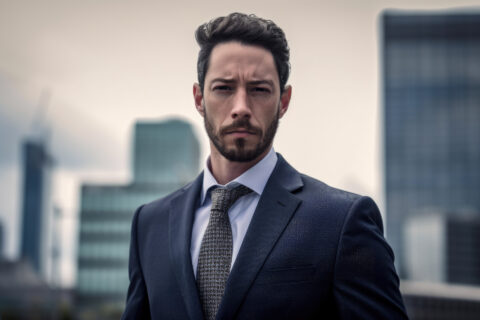Why do people become entrepreneurs? Answers, circumstances, and paths differ. However, look closely, and you’ll find similar, and familiar outlooks reinforce the foundation of today’s creators.
Over the next few weeks, in YFS Magazine’s “My Why, My Way” Series, we’ll take a look at inspiring stories of entrepreneurs, why they started, and hard-won lessons they’ve learned along the way.
From making an impact and building dreams to debunking stereotypes and more, here’s an inside look at ten remarkable entrepreneurs and the “why” behind their business.
1. I’m making a positive impact
“I started Whimsy Soul in February 2015 as a fun, creative project. Fast forward four years and Whimsy Soul is a body positive lifestyle blog with a total reach of over 110,000 women each month, and it is my (and my husband’s) full-time job.
“I had just moved across the country to San Francisco from Wisconsin and didn’t know anyone other than my cat and now husband. In the Midwest – at least in Wisconsin – there is a prevailing “change is scary” culture. Places like California and NYC feel so far away and only meant for skinny unicorn people who make it to Hollywood.
“At the very core, I felt many women just needed a relatable person to point to and say ‘She’s just like me, did XYZ, and maybe I can too.’ So, one night while sitting on an old futon mattress what was our bed for a whole year, I started the Whimsy Soul blog with the purpose of delighting and empowering a female reader to be her best self. Inside and out. I worked on Whimsy Soul at night and on weekends the first three years. I still had an office job to pay the bills.”
Lessons Learned
“When you are bootstrapping something creative like a blog and Instagram page, it’s hard for other people to see your vision, especially older family members who don’t even know how to open up the Instagram app let alone what the words ‘influencer marketing’ means.
“I’m working for myself on a brand that has a positive impact on other women.”Kara Harms, co-founder of Whimsy Soul
“I quickly learned to rely solely on myself to propel my brand forward and that I get out exactly what I put into it. There are no co-workers to pick up your slack if you take a few days off. If you choose not to pitch new brands that week, you didn’t get in front of new brands that week. If you didn’t take new photos on Monday, you don’t have anything to post to Instagram on Tuesday.
“I love that every bit of work I do each day matters. I’m not working for other people. I’m working for myself on a brand that has a positive impact on other women. It’s the best feeling in the world, and why I decided to be an entrepreneur in the first place.”
–– Kara Harms, co-founder of Whimsy Soul
2. I built my own dream
“The money, lifestyle, and workload were irrelevant. I simply did not want to build someone else dream at the cost of my own.”
Lessons Learned
“The most important lesson I learned was from watching Batman escape from Bane’s prison in Batman: The Dark Knight Rises. I realized that the only way to realize my full potential was to risk everything and let the fear of failure find me again.”
–– Hamiz Mushtaq Awan, Founding Partner at Plutus21
3. We fixed an insanely terrible customer experience
“We created Helix out of a personal need having moved to a new city for business school. My co-founders and I each had to go through the process of buying a new mattress and quickly realized how insanely terrible the experience is for consumers. Simultaneously, the market was ripe for disruption. Since we launched Helix in 2015, we’ve raised millions of dollars in funding and scaled the team substantially.”
Lessons Learned
“I’ve learned along the way is that scale is hard. Whether it be sales, people, or systems – people frequently talk about scaling a business as exciting, but it’s super hard to manage and requires a new set of skills versus starting the business in the first place. It’s important to keep this in mind as your company grows.”
–– Adam Tishman, co-founder and CEO of Helix
4. I took control of my professional destiny
“In 2014, after 3-hour daily commutes, long hours, multiple trips out of town, new family, and a fresh MBA degree I knew it was time. Like many entrepreneurs, I just wanted to take control of my professional destiny. I have both a design background and a construction background. I felt I needed to capitalize on that and provide clients with that best experience and solutions.”
Lessons Learned
“I learned many lessons along my entrepreneurial journey. First was always to be humble and add team members that excelled in areas I didn’t. Second, get the best tools to help you achieve the best results for your clients. Third, pull a team of consultants together that can mentor you along the way – accountant, lawyer, and banker. Finally, make sure you enjoy the ride.
“There is a lot of stress starting your own company. You must be able to laugh it off and continue to move on and enjoy every day.”Alex Zuendt, CEO of Zuendt Engineering
“There is a lot of stress starting your own company. You must be able to laugh it off and continue to move on and enjoy every day. If you don’t, it will feel like a job and not like the passion you started with.”
–– Alex Zuendt, CEO of Zuendt Engineering
5. I created more than what a job could offer
“I’ve always found myself wanting more than what a job could offer me. And like many other creatives, I was fascinated with the idea of making something that could outlive me–a legacy that stands on its own and inspires great work in others. If I was going to work hard to succeed, I might as well be working hard on my own business. And, yes, there’s always the added bonus of getting to charge what you feel you’re worth.”
Lessons Learned
“I’ve learned to have both a clear mission and a vision at all times. Your mission clarifies where you are now and what’s important to you. Your vision tells the world where you’re going, and how your success will impact the world, your industry, your customers, etc.”
–– Robyn Young, CEO and Head of Brand Strategy at Robyn Young & Co. LLC
6. I get to make the world a better place
“It all started when I was a kid, and I had the idea of renting out Nintendo games with my brother, which was technically my first business. I guess it’s one of those “it’s in my blood” kind of things – it never really occurred to me to work for anyone else. Beyond being a business owner, I’ve always wanted to make the world a better place, which is why the sustainability practices of my current company, Humboldt Brothers, is so important to me.”
Lessons Learned
“I’ve learned to stick with your gut. As an entrepreneur, you have an opportunity to learn from your failures and apply those learnings to your next venture.”
–– Johhny Diem, Co-Founder of Humboldt Brothers
7. I built the kind of company where I wanted to work
“I started a business so that I could create a company where I wanted to work, provide as many jobs as possible for others, and live the lifestyle that I desired to live.”
Lessons Learned
“Successful entrepreneurs are the ones that listen closely — to their clients, their peers, their competition — and learn to ask really good questions. I can attribute much of my growth to asking lots of questions and then heeding the advice of those I respected and directly addressing my clients’ needs.”
–– Michael Ly, founder and CEO of Reconciled
8. I am debunking Asian-American stereotypes
“My co-founder, Mike Kim, and I started KPOP Foods in early 2017 while we were in business school at UCLA Anderson. I wanted to build something meaningful from the ground up. Food, especially Korean food, has been and continues to be such a big part of my life – memories with family, friends, and so much more.
“I realize KPOP Foods isn’t a crazy technology that will solve cancer. However, it gives me an opportunity to show that Asian Americans can do more than be bankers, lawyers, and doctors. I worked in banking for 4 years.”
Lessons Learned
“I’ve learned how important it is to find the right co-founder. Mike and I have grown a lot together and while I won’t go as far as to say that we’re “best friends” we truly are now brothers. It took time, a lot of arguments and frustration, but in the end, we always knew we would have each other back.”
–– Theo Lee, co-founder and CEO of KPOP Foods
9. I bypassed the glass ceiling
“From my first lemonade stand and selling cookies as a Girl Scout to starting a mobile art studio for young families–I enjoy the creativity and flexibility of entrepreneurship. Plus, as a woman, entrepreneurship lessens the impact of the ‘glass ceiling.’ Fewer people are holding you back from reaching your goals. How far you make it is up to you. I also love to collaborate with people who are incredibly talented and just as ambitious.”
Lessons Learned
“Don’t give up. There’s always an answer, solution, or a new way to go about something. And there is always someone who can help as long as you keep asking questions. Embrace the concept of ‘start, stop, pivot and start’ which allows you to continue to move forward when you reach a roadblock.”
–– Julia Linsteadt, co-founder of KidArtLit
10. I didn’t know… until my co-founder purchased our domain name
“I didn’t know I wanted to be an entrepreneur until my co-founder called me out of the blue one day and told me she purchased our company URL with my last name in it. Sometimes you need people in your life who empower you and see your full potential to shake the best out of you!
“After I saw the possibility of this venture, I was inspired to drive change in a stale industry, provide a unique place for people to work and to create a lifestyle that allowed for flexibility and location-independence. Three years post-launch I was able to work on the business while living and traveling abroad for nine months—something I’d never previously dreamed of being able to do.”
Lessons Learned
“I’m writing my own job description and forging the path for the way we’re doing business without anyone telling me how or how not do it. It’s both thrilling and terrifying.
“My co-founder and I have done our best to lead with kindness and grace, which maybe has made our jobs harder or perhaps even lost us money along the way. But I can sleep well at night knowing I’m building something meaningful where people are valued. It’s hard, but I’d rather it be hard and do what’s right than any alternative. I’ve also learned to work within a ‘collaboration over competition’ environment and harness the power of a strong network.”
–– Kelsey Riley Dixon, co-founder and President of davies + dixon
What’s your why? Subscribe and follow along on our “My Why, My Way” journey.
© YFS Magazine. All Rights Reserved. Copying prohibited. All material is protected by U.S. and international copyright laws. Unauthorized reproduction or distribution of this material is prohibited. Sharing of this material under Attribution-NonCommercial-NoDerivatives 4.0 International terms, listed here, is permitted.













